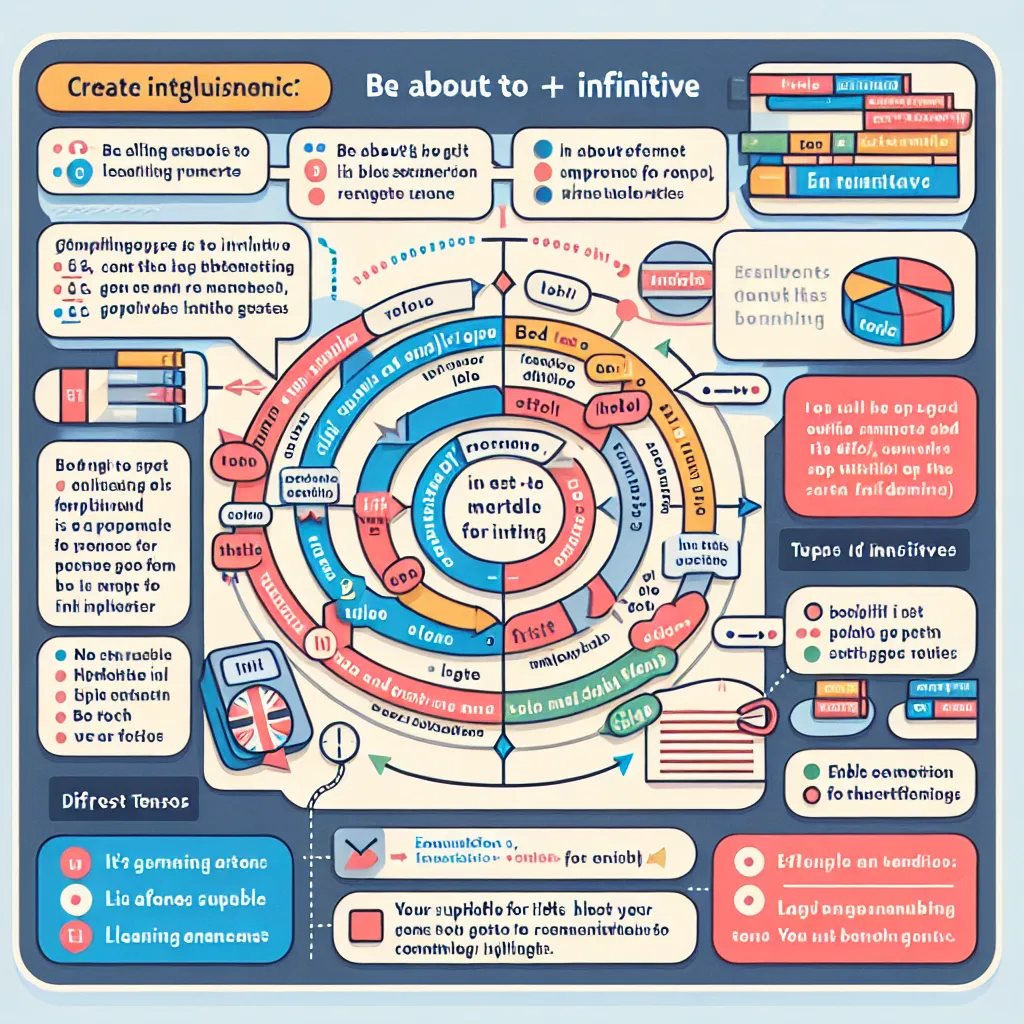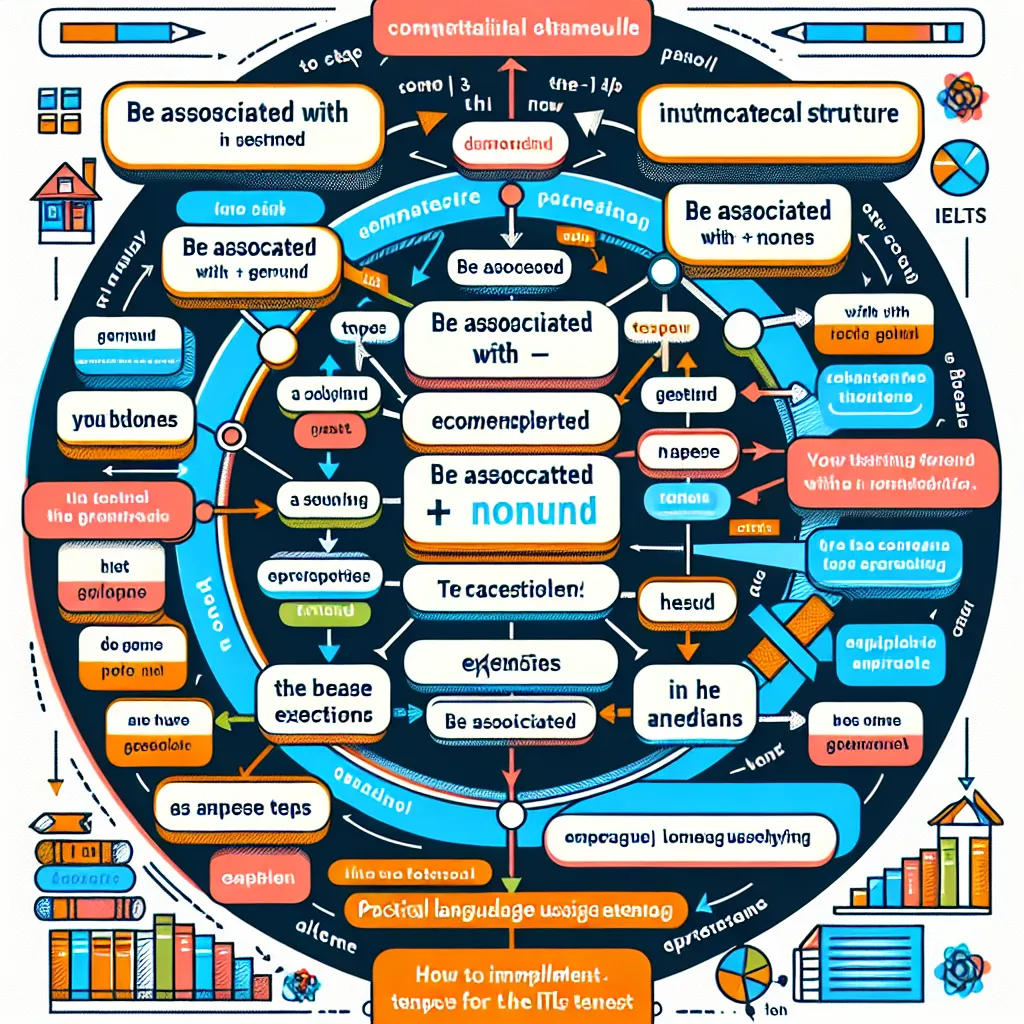In the world of English grammar, the structure “be about to + infinitive” is a powerful tool that can elevate your IELTS score when used correctly. This construction is particularly useful in expressing imminent actions or events, making it a valuable asset in both the IELTS Speaking and Writing sections. Let’s dive into the intricacies of this structure and explore how you can effectively incorporate it into your IELTS preparation.
Nội dung bài viết
Examples of “be about to + infinitive” in IELTS context:
- “The lecture is about to begin, so we should take our seats.”
- “I was about to leave for the exam when I realized I’d forgotten my ID.”
- “The researchers are about to publish their groundbreaking findings.”
- “We were about to board the plane when the flight was delayed.”
- “The government is about to implement new environmental policies.”
In each of these examples, the structure indicates an action that is on the verge of happening, demonstrating its versatility in various situations you might encounter in the IELTS test.
 Be about to + infinitive structure
Be about to + infinitive structure
Understanding “Be About to + Infinitive”
The “be about to + infinitive” structure is used to express that something is going to happen very soon. It’s a near-future tense that conveys immediacy and intention. In IELTS, this structure can help you express time-sensitive situations or imminent actions with precision.
Grammatical Formula
The basic formula for this structure is:
[Subject] + [to be (conjugated)] + about to + [infinitive verb]
For example:
- I am about to start my IELTS preparation.
- She is about to submit her application.
- They were about to leave when it started raining.
Application in IELTS Writing
Incorporating “be about to + infinitive” in your IELTS Writing can demonstrate a sophisticated grasp of English grammar. Here’s how you can use it effectively:
Task 1 (Academic)
When describing trends or processes that are about to occur, you can use this structure to add immediacy to your analysis:
“The graph indicates that the population is about to exceed 10 million in the coming year.”
“Based on the data, renewable energy sources are about to surpass fossil fuels in terms of usage.”
Task 2 (Academic and General Training)
In argumentative essays, use this structure to discuss imminent changes or actions:
“Many experts believe that artificial intelligence is about to revolutionize the job market, potentially leading to significant unemployment in certain sectors.”
“Governments worldwide are about to implement stricter environmental regulations to combat climate change.”
Enhancing IELTS Speaking Responses
In the Speaking test, “be about to + infinitive” can help you express immediacy and add variety to your responses:
Part 1
Examiner: “Do you have any plans for this evening?”
Candidate: “Actually, I’m about to meet some friends for dinner right after this test.”
Part 2
When describing a past event:
“I was about to give up on finding the perfect gift when I stumbled upon a unique handmade item in a small shop.”
Part 3
Discussing future trends:
“I believe we’re about to witness a significant shift in how education is delivered, with more emphasis on online and personalized learning.”
Advanced Usage for Higher Band Scores
To aim for band 7 and above, consider these advanced applications:
-
Combine with other structures:
“Having just completed my research, I’m about to begin writing my thesis.” -
Use in conditional sentences:
“If the government doesn’t act soon, we’re about to face a severe economic crisis.” -
Incorporate adverbs for emphasis:
“The company is just about to launch its revolutionary new product.” -
Use in reported speech:
“The manager announced that they were about to implement new workplace policies.” -
Employ in passive constructions:
“The new legislation is about to be passed by parliament.”
Common Mistakes to Avoid
-
Using the wrong form of ‘to be’:
Incorrect: “I is about to leave.”
Correct: “I am about to leave.” -
Adding ‘to’ after ‘about’:
Incorrect: “She is about to to start her presentation.”
Correct: “She is about to start her presentation.” -
Using with general truths or habits:
Incorrect: “The sun is about to rise in the east every morning.”
Correct: “The sun rises in the east every morning.” -
Confusing with ‘going to’:
While both express future actions, ‘be about to’ is for more immediate futures.
“I’m going to visit Paris next year.” (general future plan)
“I’m about to board the plane to Paris.” (immediate action) -
Using with non-action verbs:
Incorrect: “He is about to know the answer.”
Correct: “He is about to find out the answer.”
Conclusion
Mastering the “be about to + infinitive” structure can significantly enhance your IELTS performance. It allows you to express imminent actions with precision and sophistication, potentially boosting your scores in both Speaking and Writing sections. Remember to practice using this structure in various contexts and tenses to fully internalize its usage. As you prepare for your IELTS exam, look for opportunities to incorporate this structure naturally in your responses, always ensuring that it fits the context and timing of the actions you’re describing.
For further enhancement of your IELTS grammar skills, you might want to explore related structures such as causative verbs followed by infinitive or seem to + infinitive. These additional constructions can provide you with a wider range of grammatical tools to express complex ideas in your IELTS tasks.


